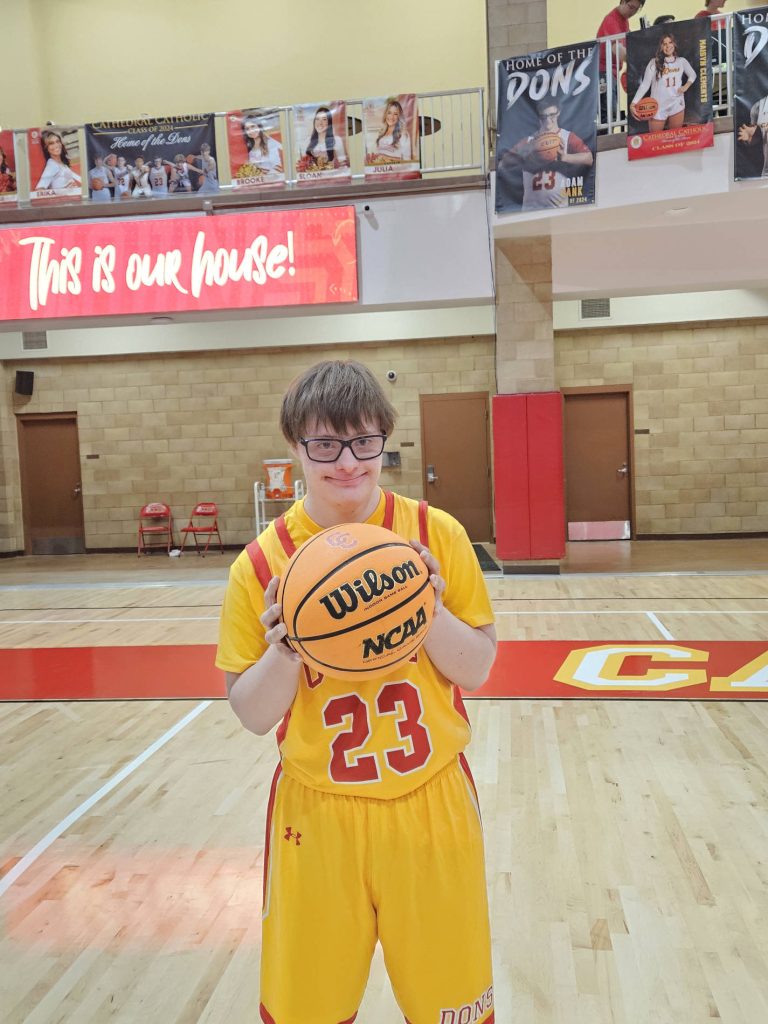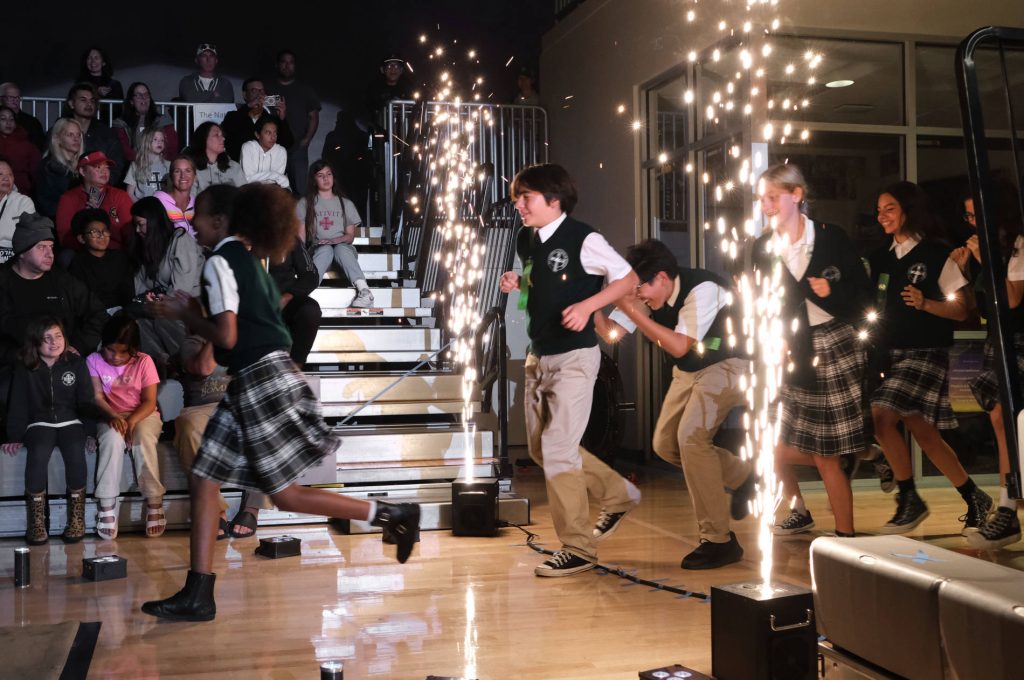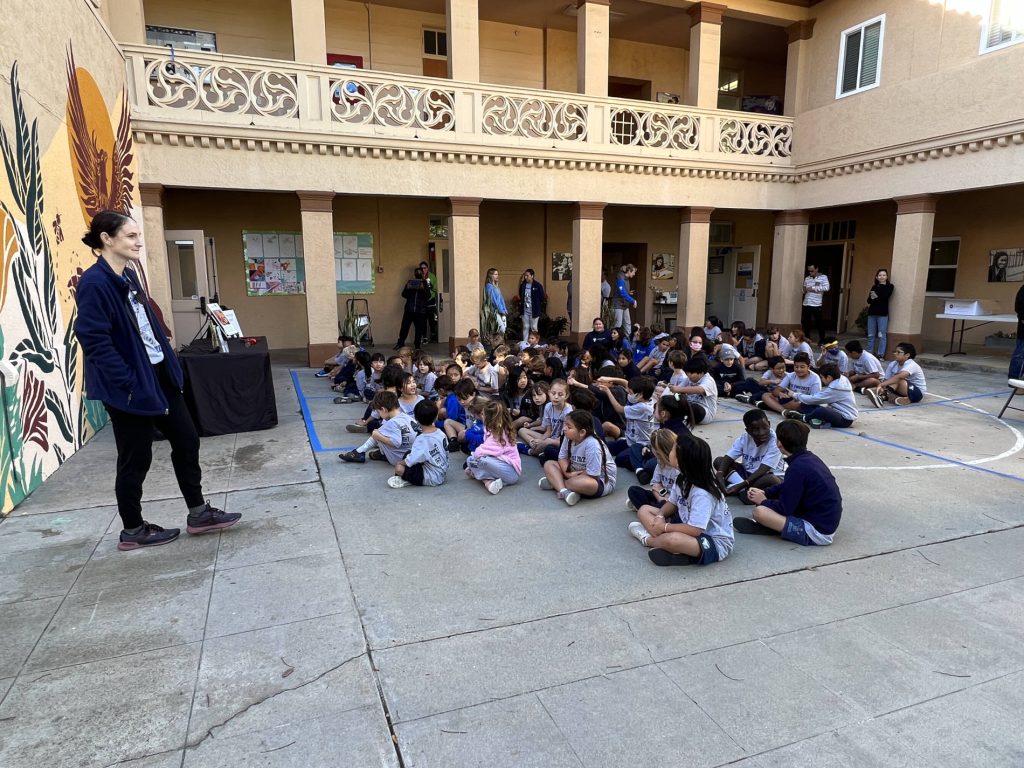SAN DIEGO – When Rosalie Wisniew began teaching at St. Didacus Elementary School in the mid-1980s, the school hadn’t yet acquired the eight or nine Apple Macintosh computers that would mark the humble beginnings of its computer class.
By the time she retired this past June, after 11 years at Cathedral Catholic High School, all of her students were using iPads instead of printed textbooks.
Over her three and a half decades in Catholic education, primarily teaching science and computers, Wisniew has seen a lot of change.
Technology advanced exponentially and has been increasingly integrated into classroom instruction. It has also provided today’s Catholic school parents with the ability to communicate with their children’s teachers and to access report cards, homework assignments, attendance data, and more at practically the push of a button.
Thanks to new educational standards, science classes are more hands-on than ever. And the days when Catholic schools were run by religious sisters – the principal who hired Wisniew at St. Didacus was a Sister of Mercy and there was an active convent at the school – are gone, having transitioned long ago to lay administration.
But one constant has been the Catholic faith, which has guided Wisniew throughout her career. She made a point to “bring God’s world into what I do,” she said, showing her students that faith and science are not incompatible.
“There are six kingdoms of life that you study” in biology, she said, referring to Archaebacteria, Eubacteria, Protista, Fungi, Plantae and Animalia. “But, basically, the most important kingdom of all … is the kingdom of God.”
Wisniew, who holds degrees in microbiology and zoology from San Diego State University, had worked as a microbiologist for the Food and Drug Administration before joining the faculty of St. Didacus School in 1985 as the eighth-grade science teacher.
At the time, her career path hadn’t seemed to be leading toward the classroom.
“It just kind of, I would say ‘evolved’ – that’s a good word, ‘evolution.’ That evolved into teaching,” said Wisniew, who was already a school parent at the time.
Ultimately, all eight of her children would attend St. Didacus School. The oldest child, Gregory, entered kindergarten in 1974 and the youngest child, Anthony, graduated from eighth grade in 2001. From there, the Wisniew children headed off to either St. Augustine High School, the alma mater of her husband, Jerry, or the Academy of Our Lady of Peace, her own alma mater.
Wisniew taught for 23 years at St. Didacus School, where her subjects included both science and computers, as well as a stint as the school’s librarian.
In 2008, she left St. Didacus and joined the faculty of Cathedral Catholic High School, where she taught biology, as well as anatomy and physiology, and served as moderator of the Gardening Club.
One of her lasting legacies on the Cathedral Catholic campus is the 2,834-square-foot St. Francis of Assisi Garden, which was established in 2012 and includes dwarf fruit trees; assorted vegetables, including broccoli, potatoes, carrots, cabbage and more; edible flowering plants; and butterfly and hummingbird host plants. Wisniew proposed the creation of the garden, which has been used by the Gardening Club and also serves as a living lab for biology, environmental science and physics classes.
Since her retirement, Wisniew said she has returned to campus at least three times already, checking in with her colleagues in the Science Department and looking in on her garden.
“I have my foot in the garden gate,” she said, colorfully explaining that she is committed to volunteering in the school garden as a retiree.
Wisniew takes gardening seriously. She noted with pride that the English cottage garden that she has developed at her North Park home has been featured in three national magazines. And she sees parallels between classrooms and gardens and the work that takes place in each.
“I’m going to miss the students, because teaching is a lot like gardening,” said Wisniew, who describes gardens as places where there is always work to be done and growth taking place.
“Watching my students grow into beautiful, smart, talented, gifted and amazing young adults has been one of the greatest adventures and memorable experiences of my life, both at St. Didacus Parish School and Cathedral Catholic High School,” she said. “Students truly brighten up my life with a ray of light and energy that can’t be found in any bottled energy drink.”
Christine Dean, principal of St. Didacus School, was the school’s new kindergarten teacher in the early 1990s and saw Wisniew as a more seasoned colleague.
“I just looked at her as if that’s the kind of teacher I wanted to be,” Dean said.
As one of her extracurricular duties, Wisniew played a significant role in the preparations for St. Didacus School’s annual May Crowning celebration, supplying roses from her own garden and making the crown of flowers that a student would place on the head of a statue of Mary.
“That was her thing and she did it for so many years. When she left here … she passed it on to me and then I had to live up to her,” Dean said with a chuckle.
“I always felt like I had to live up to her reputation,” she said.
Dean’s daughters, Karla and Allie, both had Wisniew as a teacher at St. Didacus, and Allie had her again for biology class at Cathedral Catholic.
Dr. Kevin Calkins, principal of Cathedral Catholic, describes Wisniew as “a woman of faith” who “loved being a Catholic school teacher, with an emphasis on Catholic.”
“Teaching was a ministry for Rosalie. She always saw her role as a teacher in the context of her role as a minister,” said Calkins, who noted that the longtime science teacher had been “a fixture at daily Mass on campus” and an educator who believed that “you are able to evangelize through teaching science and, more importantly, through your words and actions.”
Having concluded a career in Catholic education, what insights or advice does Wisniew have for current and future generations of Catholic educators?
“No matter how busy we are, we need to find time for prayer. I think that’s important,” she said. “It was important for me to be able to go to daily Mass.”
She added, “There’s a lot of other things I can say, but … that’s the bottom line, and that’s where we need to be.”









